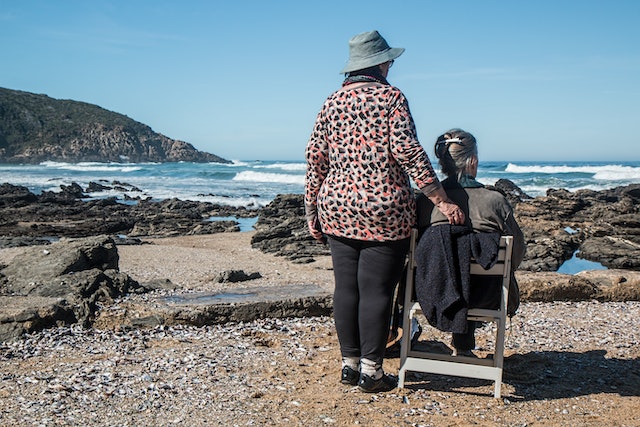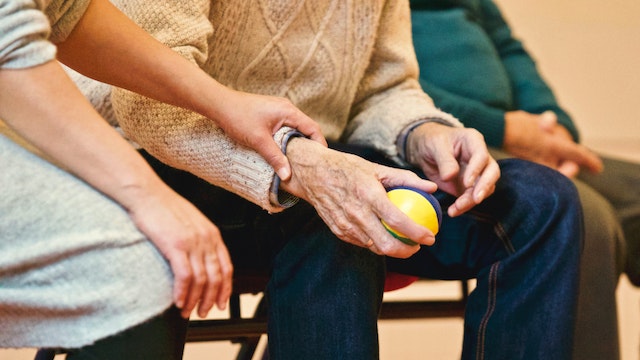Photo by Matthias Zomer at Pexels
Unfortunately, injuries can become more and more common as people move through their elderly years. With deteriorating mobility and an increased need for assistance, the risk of an accident gets higher as people age. From burns to falls, there are many different injuries that a senior can suffer from.
Another unfortunate fact is that it typically takes longer to heal from any injury the older that we get. This can mean prolonged rehab needs required in order to see improvements.
With this being said, it is important to try and prevent injuries before they happen if at all possible, especially for the elderly. To better understand the potential common injuries an aging senior in your life may deal with, continue reading.
Table of Contents
Bedsores
As people age, they typically spend more and more time in bed. If their mobility is so low that they can’t move on their own, then they are at a higher risk of getting bedsores. Bedsores are sores on the body when someone hasn’t moved over a very long period of time. For example, if someone is bed ridden and they don’t have assistance flipping over and changing position, then their skin will eventually lose blood flow in certain areas and start decaying. Untreated bedsores can eventually turn into a form of carcinoma and in rare cases, it can lead to sepsis. So, it is important to take switching positions quite seriously.
Luckily, bedsores are easily prevented by having reputable caregivers who ensure consistent movement. If someone does develop a bedsore, they can be treated through removing pressure from the affected area, protecting the wound with medicated gauze, and ensuring good nutrition. More serious cases may require removing damaged, infected, or dead tissue, or even a skin graft. Many people don’t realize how crucial it is to prevent bedsores before they start due to the long recovery journey they may lead to.
Burns
Burns are another common injury for seniors. Burns can come from many different activities – from cooking accidents, to forgetting to blow out a candle, to misusing appliances. Burns can range from very mild to fatal for anyone, but especially for seniors whose aging bodies may take longer to heal. Fatalities are mainly attributed to seniors not responding as well to burn treatments for more severe incidences.
There are many ways to avoid burn injuries. The first and most important thing to do is to place fire extinguishers in the kitchen and bedrooms, so that fires can be put out properly and quickly. Ensuring that there are working smoke and carbon monoxide detectors is also a critical preventative step. To reduce the occurrence of cooking-induced burns, many seniors adopt the use of hand mittens that cover a major part of their arm while they cook. If someone does endure a burn then they should immediately seek out medical help. Caregiving assistance should also be considered for seniors who have a history of burning themselves when performing day-to-day activities unassisted.
Sprains
When mobility decreases, the risk of tweaking something in your body increases.Hands and ankles are less flexible as we age, which also contributes to an increased risk of sprains and strains. A lot of seniors will experience a sprain at one point or another, and they can be damaging for older people long-term. Even though sprains are much less painful than fractures, they can be quite debilitating for seniors as they take longer to heal.
Handrails and hand bars can greatly help in the prevention of sprain-inducing accidents. Good lighting throughout one’s home is also critical to ensure that seniors are confident with where they are walking. Preventing sprains and any major risk of falls is crucial for seniors who are still living in their own home independently.
Trauma, Breaks, and Fractures

Photo by at Pexels
Injuries can take an extra toll on the elderly. It is important to try to prevent the cause of these injuries, but even more important to seek out immediate treatment. Even if something seems minor, it can turn very dangerous very quickly for someone of advanced age.Sandyside Senior Living
This information was provided by Sandyside Senior Living in White Lake, Michigan. Sandyside specializes in advanced care for seniors with dementia, Parkinson’s, and all age-related illness.
Interested in learning more about Sandyside Senior Living? Contact Sandyside online, or call at (248) 698-3700.
To get in touch with Sandyside Senior Living please complete the form below:
VISIT SANDYSIDE SENIOR LIVING TODAY
PHONE: (248) 698-3700


